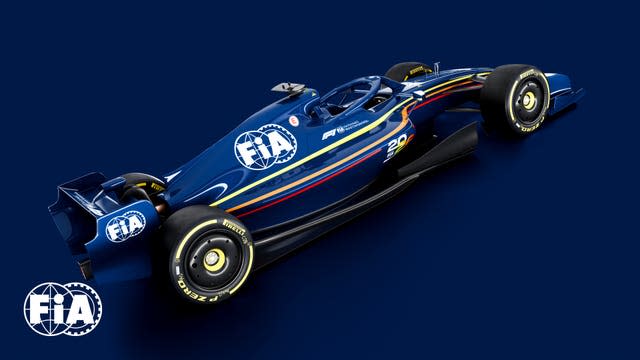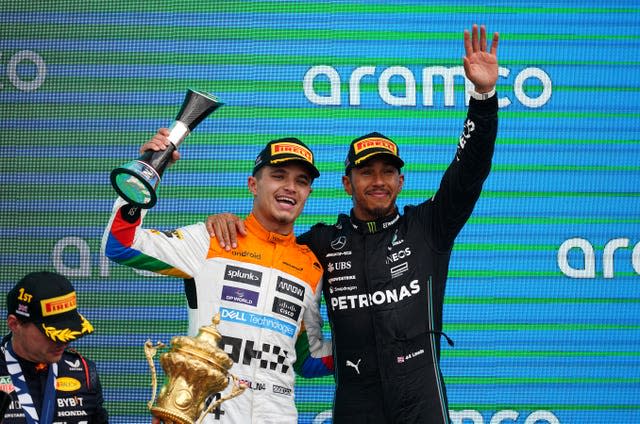Lewis Hamilton: Future F1 cars might be ‘pretty slow’ despite lighter machinery
Lewis Hamilton fears Formula One cars from 2026 will remain “pretty slow” after the next-generation machinery was unveiled.
On the eve of this weekend’s Canadian Grand Prix, F1 provided a glimpse into its future after the concept of a car – which is hoped will provide greater racing from 2026 onwards – was revealed.
The new smaller machinery, incorporating a simplified combustion engine using fully sustainable fuels and the introduction of a new overtaking boost button, is set to be 30 kilograms lighter than the sport’s current design.
The FIA has now promised a minimum weight of 768kg – down from almost 800kg – with the governing body saying a “nimble” car has been at the heart of its new concept.

Hamilton has repeatedly stressed that the current cars are too heavy while Lando Norris said last year that the machinery “needs to be made lighter again and then the cars will come back alive”.
Seven-time world champion Hamilton was driving cars around 600kg when he started in F1 in 2007 and believes that the small weight reduction for 2026 will not have a massive impact.
“It is only 30kg so while it is a step in the right direction they are still heavy,” Hamilton, who will be driving for Ferrari in 2026, said.
“I’ve only seen what everyone has seen this morning but I’ve spoken to some drivers who have driven it (the 2026 car) on the simulators and they say it is pretty slow.
“The sustainability of the new cars, though, is a bold step and that is going in the right direction.”

Recent big regulation changes in the sport have led to a large spread in the field and a period of dominance for one team.
Mercedes began a period of success when the change to V6 engines came in in 2014 while Red Bull’s current spell of dominance following the regulation change in 2022 has led to accusations that the sport has been boring.
Teams such as Ferrari and McLaren are beginning to catch up with Red Bull, prompting the question as to whether a longer period of stable regulations would be better for the sport.
“More often that not when they (the FIA) do the changes some teams do better that others,” Mercedes’ Hamilton said.
“Hopefully these regulations won’t make too big a difference.”

McLaren’s Norris and Oscar Piastri echoed fears that the field may spread out again with a regulation change.
“Just when it gets exciting there is going to be another change,” Norris said. “There are reasons for it and you want to make the sport better.
“But just as the sport gets exciting again I don’t want it to go the opposite way. A regulation change could mean you have massive gaps and people will go ‘it’s just boring again’.
“Now is as exciting as it has been in a long time and I want to leave it like this for a few years and that’s the best for people watching on TV.”
Australian Piastri added: “Every time the regulations have changed it has led to a pretty big spread.
“With these regs we are only just starting to catch up to Red Bull now.
“But we have a place in society to be at the forefront of technology and innovation and I guess you could argue that sometimes that comes at the cost of the racing.
“I wouldn’t be surprised if the teams separated more in 2026 with the aero regs and the engine regs.”